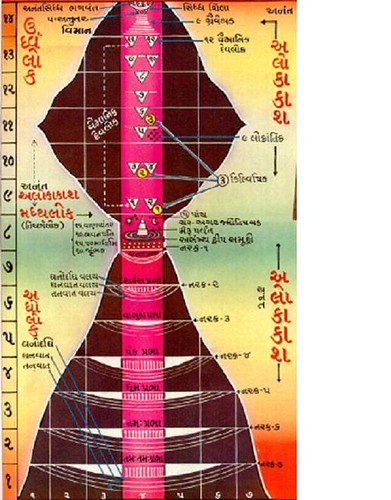The Jain concept of Lokaswarup refers thinking about the universe.
Thinking of the universe.
Think of the creation of the fourteen Rajlok (universe) which are made up of the substances which are subject to the law of origin existence and destruction. This whole universe is filled with jivas and pudgals.Transitory of universe.
Under this reflection, one thinks about the real nature of this universe. Judging from the standpoint of substance, it is eternal but from the standpoint of modification it is transitory.
Thus all objects of the world come into existence and perish. This thought makes him understand the true nature of reality, which is necessary for right knowledge and faith.
~~~~~~~~~~~~~~
This concept is part of the 12 Bhavnas (Reflections or Thoughts). Some people believe that there are 16 Bhavnas. The following explains what the Bhavnas are. (Taken from http://www.fas.harvard.edu/~pluralsm/affiliates/jainism/jainedu/12bhavna.htm)
Jain religion puts a significant emphasis on the thought process of a human being. A person’s behavior and his actions are the reflection of his internal thoughts, day in and day out. It is not the action but intention behind the action results in the accumulation of Karma. Hence, one should be very careful about his thoughts, how he thinks, and the subject matter of his thought.
To make room for pure thoughts, and to drive out the evil ones, Jainism recommends to reflect or meditate the following twelve thoughts or Bhavnas.
The twelve Bhavnas described here are the subject matters of one’s meditation, and how to occupy one’s mind with useful, religious, beneficial, peaceful, harmless, spiritually advancing, karma preventing thoughts. They cover a wide field of teachings of Jainism. They are designed to serve as aids to spiritual progress, produce detachment, and lead the aspirants from the realm of desire to the path of renunciation. They are reflections upon the fundamental facts of life, intended to develop purity of thought and sincerity in the practice of religion.
The reflections are also called Anuprekshas, longings, thoughts, aspirations, or Bhavnas.
Pravin K. Shah
Jain Study Center of North Carolina
